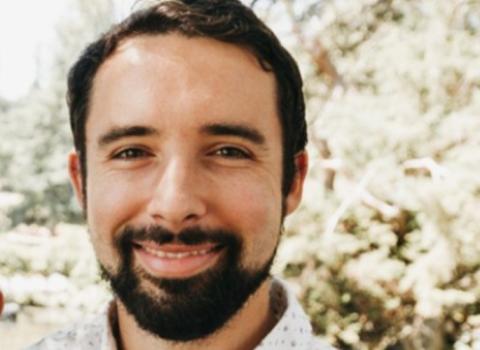Joshua Glassmyer
Founder of ermöglichen, Cyber Security and Privacy Professional
UW Major: Germanics
Tell us a bit about your job (e.g. what kinds of things you’re working on, what types of problems you solve day to day, etc.)?
Today [my company, ermöglichen,] is a very fledgling endeavor, and at this point basically consists of me doing pro-bono career advisory to refugees who hope to work in tech. The long-term aim is to scale outward and help people train for positions in security, compliance, cloud computing or analytics. My job previously was in sales for an Internet-of-Things and cyber security company, and before that as a cloud computing consultant. In my work, I mainly helped people to preemptively (or unfortunately, sometimes regressively) solve security problems with their business. I managed the Greater Seattle Area, but hoped to be a leader in business one day, so I employed some of the Germanics from my degree and was admitted with a language scholarship to the #1 business school in Germany: ESMT Berlin. It was a dream come true for me. I am hoping to take my Managerial Analytics focus at ESMT and use it to help people with an interest effectively translate the technical component to roles in business. It's a big gap between technical roles and business roles nowadays, though it is getting narrower. It has been tough to continue with no longer being in the United States, but there have still be opportunities to give advice, help people negotiate contracts and the recruiting process, etc. with the time difference.
How do you think your humanities education has influenced/advanced your career path?
My experience with the Germanics department at UW was overwhelmingly positive. Without it, I wouldn't have made the decision to move to Germany. I think we so often underestimate the soft skills that can help us find where we are supposed to be; I certainly did. I know not one, but two people specifically, who spent a season teaching English in a foreign country before leveraging their communication skills to secure positions as account managers at revolutionary software companies. I speak about this not to narrow the focus, but because it's my sector: from the standpoint of technology, a new angle is critical to the industry, whatever function you choose to take.
Ethics and a human perspective are coming into play in a huge way in realms like data privacy, and will to a greater extent in coming years with technologies like artificial intelligence. It's a world of "can and do", and should be a world with more people asking "should we?" and "why?" For me, the lessons in written communication, as well as the cultural takeaways ("aufverstanden aus Ruinen") contributed mightily to my professional life before ESMT and my graduate studies currently. With the cascade of coding bootcamps and a new emphasis on hard skills, I think it is important to emphasize that there are things the Humanities route cultivates that can't simply be trained: curiosity, altruism, and hope. Those are the real deal, and what truly differentiate remarkable people in the working landscape. I am very grateful I had the opportunity to be a part of this world, and would gladly do whatever I can to help it along.
Want to read more? Check out the profiles on the Alumni Spotlights page for more information on what our humanities majors are up to.
